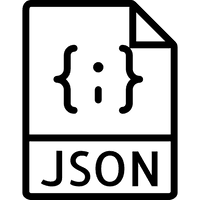The target-jsonl loader sends data into JSON Lines (JSONL) after it was pulled from a source using an extractor
Getting Started
Prerequisites
If you haven't already, follow the initial steps of the Getting Started guide:
Installation and configuration
-
Add the target-jsonl loader to your
project using
:meltano add -
Configure the target-jsonl
settings using
:meltano config
meltano add target-jsonlmeltano config target-jsonl set --interactiveNext steps
Follow the remaining steps of the Getting Started guide:
If you run into any issues, learn how to get help.
Capabilities
This plugin currently has no capabilities defined. If you know the capabilities required by this plugin, please contribute!Settings
The
target-jsonl settings that are known to Meltano are documented below. To quickly
find the setting you're looking for, click on any setting name from the list:
You can also list these settings using
with the meltano configlist
subcommand:
meltano config target-jsonl list
You can
override these settings or specify additional ones
in your meltano.yml by adding the settings key.
Please consider adding any settings you have defined locally to this definition on MeltanoHub by making a pull request to the YAML file that defines the settings for this plugin.
Destination Path (destination_path)
-
Environment variable:
TARGET_JSONL_DESTINATION_PATH -
Default Value:
output
Sets the destination path the JSONL files are written to, relative to the project root.
The directory needs to exist already, it will not be created automatically.
To write JSONL files to the project root, set an empty string ("").
Configure this setting directly using the following Meltano command:
meltano config target-jsonl set destination_path [value]Include Timestamp in File Names (do_timestamp_file)
-
Environment variable:
TARGET_JSONL_DO_TIMESTAMP_FILE -
Default Value:
false
Specifies if the files should get timestamped.
By default, the resulting file will not have a timestamp in the file name (i.e. exchange_rate.jsonl).
If this option gets set to true, the resulting file will have a timestamp associated with it (i.e. exchange_rate-{timestamp}.jsonl).
Configure this setting directly using the following Meltano command:
meltano config target-jsonl set do_timestamp_file [value]Custom File Name Override (custom_name)
-
Environment variable:
TARGET_JSONL_CUSTOM_NAME
Specifies a custom name for the filename, instead of the stream name.
The file name will be {custom_name}-{timestamp}.jsonl, if do_timestamp_file is true.
Otherwise the file name will be {custom_name}.jsonl.
If custom name is not provided, the stream name will be used.
Configure this setting directly using the following Meltano command:
meltano config target-jsonl set custom_name [value]Something missing?
This page is generated from a YAML file that you can contribute changes to.
Edit it on GitHub!Looking for help?
#plugins-general
-brightgreen)










-4,273-c0c0c4)
-1,060-c0c0c4)





